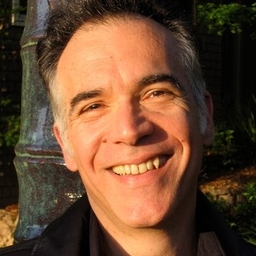
Kenneth Miller
Contributing Editor at Discover Magazine
Freelance Journalist at Freelance
Author: Mapping the Darkness, Oct 2023 @HachetteBooks. Contributing editor, Discover. Bylines in Mother Jones, Rolling Stone, Aeon, etc. Harmonica & keyboards.
Articles
-
Nov 3, 2024 |
brownalumnimagazine.com | Kenneth Miller
Dement designed a trial to gauge the effects of a “day” lasting just 90 minutes, and he assigned Carskadon to conduct it. In the study, five volunteers tried to sleep for 30 minutes and stay awake for 60, repeating the cycle over five 24-hour periods. Carskadon and her assistants took turns running the polygraph and administering tests of mood, sleepiness, and cognitive performance. The results held several surprises.
-
Jun 12, 2024 |
discovermagazine.com | Kenneth Miller
When University of Chicago physiologist Nathaniel Kleitman told fellow faculty members he was seeking a locale for a month-long sleep experiment - someplace as isolated from the rhythms of day and night as the Arctic in summer - a colleague in the geology department said he knew just the spot. Between 10 million and 15 million years ago, in what is now south‑central Kentucky, trickles of groundwater began probing the cracks in a fossil seabed.
-
Apr 3, 2024 |
pubs.usgs.gov | Marci M. Robinson |Kenneth Miller |Tali L. Babila |Tim J Bralower
Links More information: Publisher Index Page (via DOI) Open Access Version: Publisher Index Page Download citation as: RIS | Dublin Core Study Area Publication type Article Publication Subtype Journal Article Title Paleogene Earth perturbations in the US Atlantic Coastal Plain (PEP-US): Coring transects of hyperthermals to understand past carbon injections and ecosystem responses Series title Scientific Drilling DOI 10.5194/sd-33-47-2024 Volume 33 Issue 1 Year Published 2024 Language English...
-
Mar 27, 2024 |
lrb.co.uk | Kenneth Miller |Mike Jay
Why do we sleep? The habit is pretty much universal among animals, though it takes a wide variety of forms. Many hibernate; a dolphin sleeps with half its brain at a time, so it can keep surfacing for air; Arctic reindeer continue ruminating while in non-REM sleep; and the Antarctic chinstrap penguin, we learned last year, fits thousands of four-second ‘microsleeps’ into the course of a day.
-
Dec 12, 2023 |
discovermagazine.com | Kenneth Miller
Few ailments are as fearsome as Alzheimer's disease, the most common form of dementia, which robs patients of their minds and memories before it takes their lives. So, when the U.S. Food and Drug Administration approved a new treatment for Alzheimer's in July, the event made front-page news. But it also generated heated arguments. What Is the New Alzheimer's Drug?
Try JournoFinder For Free
Search and contact over 1M+ journalist profiles, browse 100M+ articles, and unlock powerful PR tools.
Start Your 7-Day Free Trial →X (formerly Twitter)
- Followers
- 1K
- Tweets
- 5K
- DMs Open
- Yes

Third & final interview on Mapping the Darkness with host Mark Lynch—probing the links between #sleep deprivation and catastrophes (from Chernobyl to the Challenger explosion), plus Mary Carskadon's campaign to liberate teens from early school start times! https://t.co/Pqvd0sL3S6

Just read @PatchenBarss's bio of Roger Penrose—and wowza! Besides the science stuff (probing the nature of reality at the quantum level), what's riveting is the portrait of Penrose, whose mix of strengths and flaws is worthy of a Greek tragic hero. https://t.co/qyPNtjZLLA

As if you needed anything else to keep you up at night... https://t.co/878AqyY6y6
